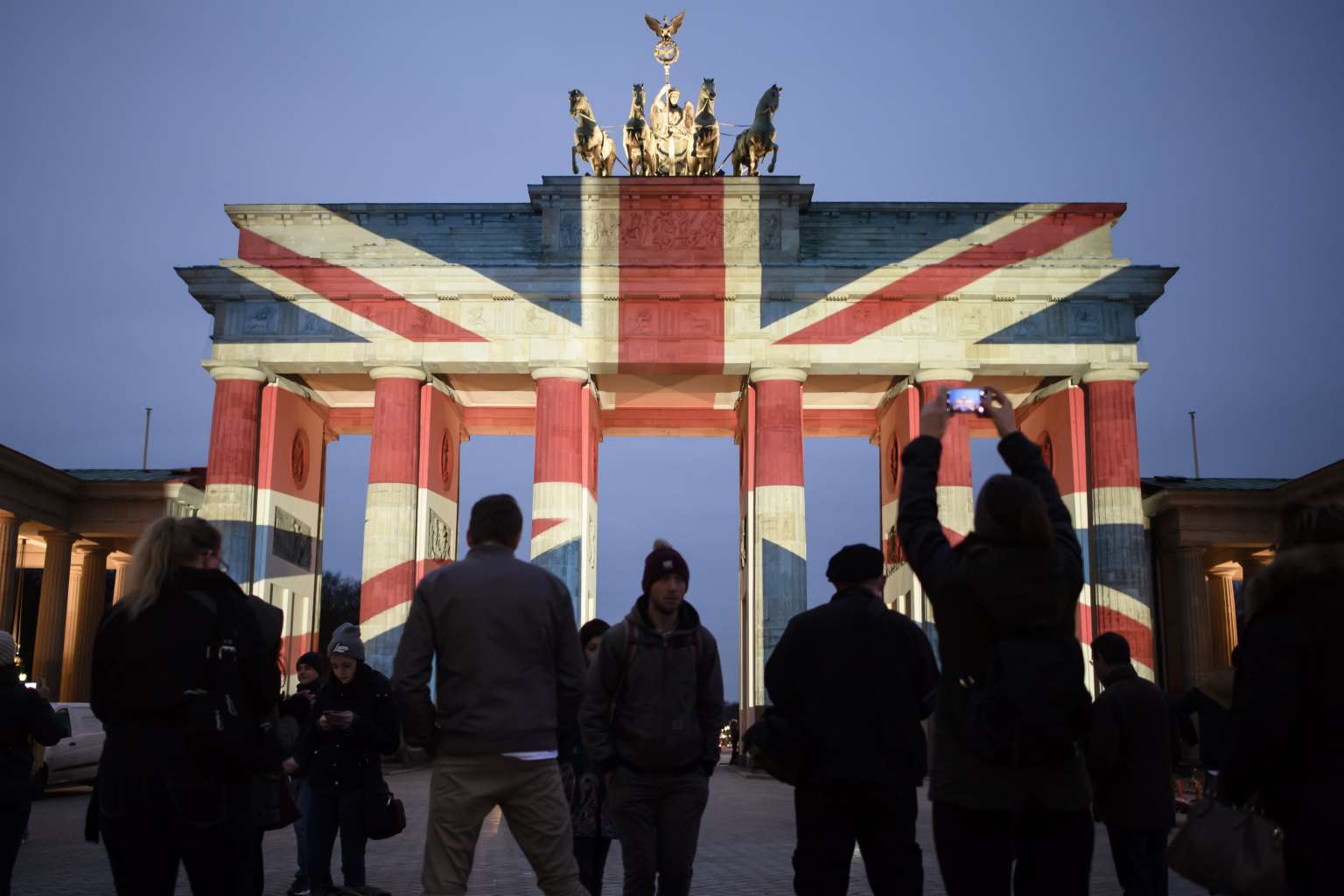Anger as Berlin refuses to light Brandenburg Gate in Russian colours after attack
Sign up now: Get ST's newsletters delivered to your inbox

The Brandenburg Gate illuminated in the colours of the British flag after the March 22, 2017, terrorist attack in Westminster.
PHOTO: EPA
BERLIN (REUTERS) - A decision by the city of Berlin not to illuminate its most famous landmark, the Brandenburg Gate, in the colours of the Russian flag to show solidarity with St Petersburg after an attack has provoked anger, with critics calling it a scandal.
In the past, after attacks in other countries, the city has beamed the colours of flags of France, Turkey, Britain and the Netherlands onto the Brandenburg Gate, which divided East and West Berlin in the Cold War.
However, a spokesman for Berlin city government said the mayor had decided it would do this only in response to attacks in "partner cities". St Petersburg, where at least 14 people were killed in an attack on the metro on Monday, is not one.
Critics argued that authorities lit up the Gate in rainbow colours last year after a gunman killed 49 people at a night club in Orlando, Florida, and also in the Israeli colours after an attack in Jerusalem. They are not partner cities.
While lights at the Eiffel Tower in Paris were switched off at midnight on Tuesday as a mark of respect for the victims of the St Petersburg attack, other European landmarks were lit in their usual way.
The head of German broadcaster Deutsche Welle's Russian service Ingo Mannteufel said the decision belittled victims of the St Petersburg attack at a time when the German government says it values the Russian people even if it disagrees with the Kremlin.
"(The West) has a moral and political duty to show solidarity with the victims of terrorism in Russia. That the Brandenburg Gate was not illuminated in the Russian colours was therefore wrong, yes, it is even a scandal," he wrote.
Andreas Petzold, publisher of German weekly Stern described the leaders of Berlin as "small-minded" in a tweet.
German government relations with Moscow took a turn for the worse when Russia annexed Crimea in 2014 and have grown more complicated since the conflict in eastern Ukraine and Russia's involvement in the war in Syria.
However, some Germans who lived in Communist East Germany before the fall of the Berlin Wall in 1989, learned the Russian language and travelled to the Soviet Union, still feel close to Moscow.
"I get the nasty feeling that the bomb victims of Russia are being treated as if they are second class. That would be morally reprehensible and politically amateurish," said Frauke Petry, head of the right-wing Alternative for Germany (AfD).


